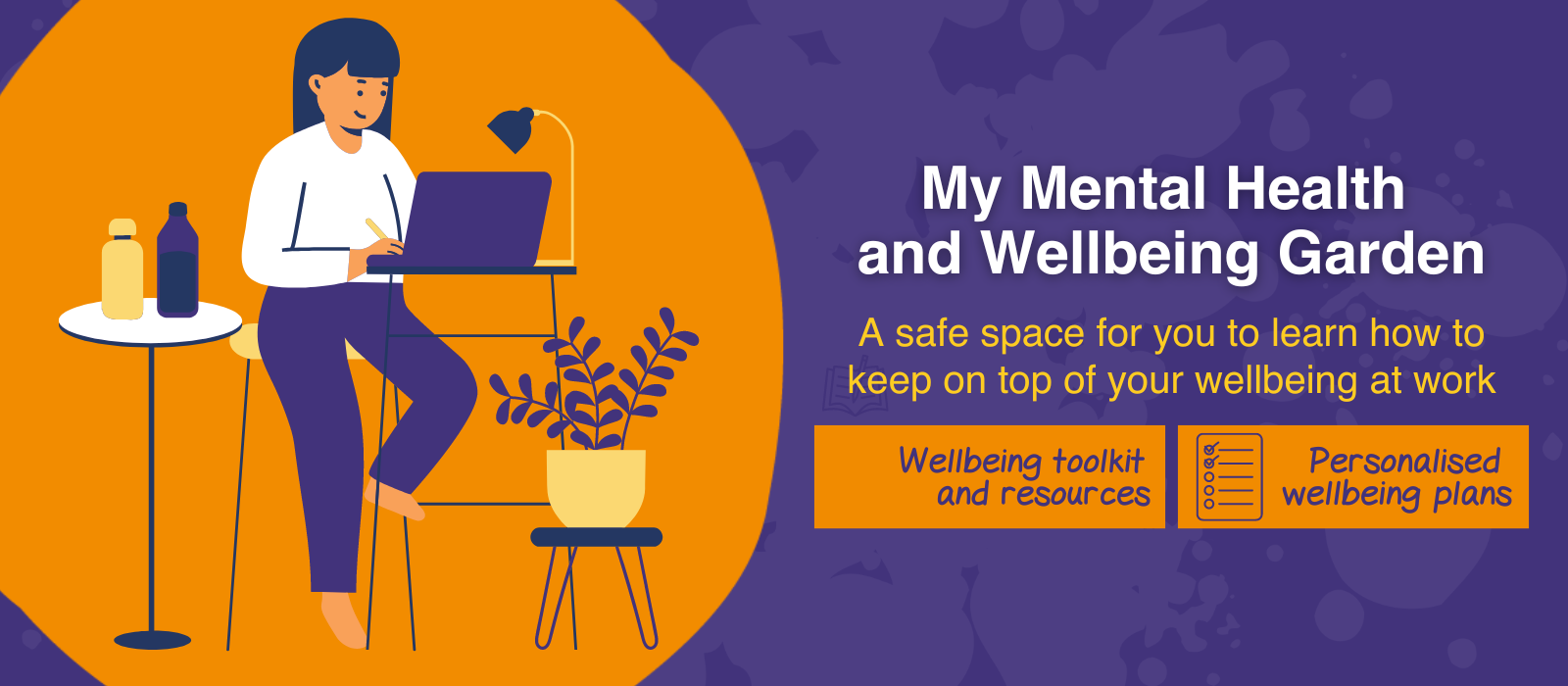News and views
Go back

Mental wellbeing at work – what really helps?
In 2021, Dr Hadar Elraz wrote for the Work Foundation on how people experiencing mental health problems had managed through the Covid-19 pandemic. Together with Moira Bell from Big Life group she returns to write about a new digital tool to manage their wellbeing.
A quick online search will reveal there’s a growing range of digital support for wellbeing at work. But what really helps? How can people looking for support find out what might work best for them?
Like many, employees at The Big Life group faced real risks in protecting their own wellbeing as they adapted to new ways of delivering services and support during the Covid-19 pandemic. They worked in partnership with Dr Hadar Elraz to co-design a new digital tool to support staff to manage their wellbeing, ‘My Wellbeing Garden’. This is a free digital e-learning module which supports users to learn about different strategies for managing their wellbeing, as well as routes to support available to them, all drawing on the metaphor of nurturing a garden.
The need for specialist support during the pandemic
The learning tool is based on initial research, which explored how in the context of widespread stigma about mental health problems, people manage experiencing mental ill health while maintaining their sense of self at work’.
The research brought new information to us about the way peoples mental health had been adversely affected by the lockdowns and shift to remote working during the Covid-19 pandemic.
The tool was developed with these circumstances in mind, recognising the challenges that can come from social isolation, compassion fatigue, burnout, and stigma as well as working remotely, providing support to others whilst looking after one’s own mental health and, with features that make the most of users accessing it in the privacy of their home rather than in a shared workspace.
Co-developing a new form of mental wellbeing support
A group of Big Life staff who work across a range of areas including children and families, public health, mental health and training and employment services. and clients supported the design and development of the new tool. During a series of facilitated workshops, forums, focus groups and interviews we gathered information about the different coping strategies people used to support their own mental health at work.
People brought a rich variety of lived experience to the workshops and co-production which directly shaped content on topics including body-mind wellbeing, compassion fatigue, burnout, and stigma. These topic areas were grouped in to broader modules: managing health and wellbeing at work, self-management of a mental health conditions – symptoms and coping strategies and talking about mental health at work.
As the tool developed, the lived experience group monitored and gave feedback to make sure it reflected the experiences discussed through the research.
People felt it was important that the tool’s visuals, graphics and stories shared a positive theme, focussed on building from individual strengths rather than focussing on deficits.
The group agreed they wanted a tool they could access flexibly and interactively, picking the topics which felt most relevant to their own mental health and wellbeing challenges rather than a traditional e-learning course which requires all participants complete all sections in a specific order.
This led to the design being pitched around a wellbeing garden which linked to the themes of nurture and growth and healthy maintenance of wellbeing. This idea of a peaceful wellbeing garden may also stand in a sharp contrast to the potential pressures many of us can face at work.
The e-learning
My Wellbeing Garden is now freely accessible to everyone and provides a safe space for people to broaden their understanding about ways to support good mental wellbeing at work. It is also a place where people can hear about others’ lived experiences and learn about what helps them to stay well. Users can create their own personalised wellbeing plan with practical tools that they can use to manage their mental health, at their own pace.
Outcomes
It was introduced in early 2022 and rolled out among 170 staff at The Big Life group. An initial evaluation found:
- 91% of staff told us that the training will help them in their role at work with 59% saying they will revisit the training again at some point.
- 62% of staff who have completed the training told us that it has been very or extremely useful. They shared that that the training provided them with an opportunity to learn practical tools and strategies for managing their mental health. It helped them to build self-confidence, cope with work stress as well as improve their focus on self-care. People gained a better understanding of their feelings, the support they can get and the benefits of getting support.
- In terms of talking about mental health at work, 92% of the people who underwent the training said they are now likely to discuss their mental health concerns with managers and colleagues.
The e-learning was developed through a collaborative project between researchers at Lancaster University and The Big Life group and was funded by the Economic and Social Research Council.
Since it was first introduced the online learning tool has been rolled out on staff training programme and is open out to public and can be access using the following link: www.thebiglifegroup.com/learnwell
To find out more about the research project contact Hadar.elraz@swansea.ac.uk
